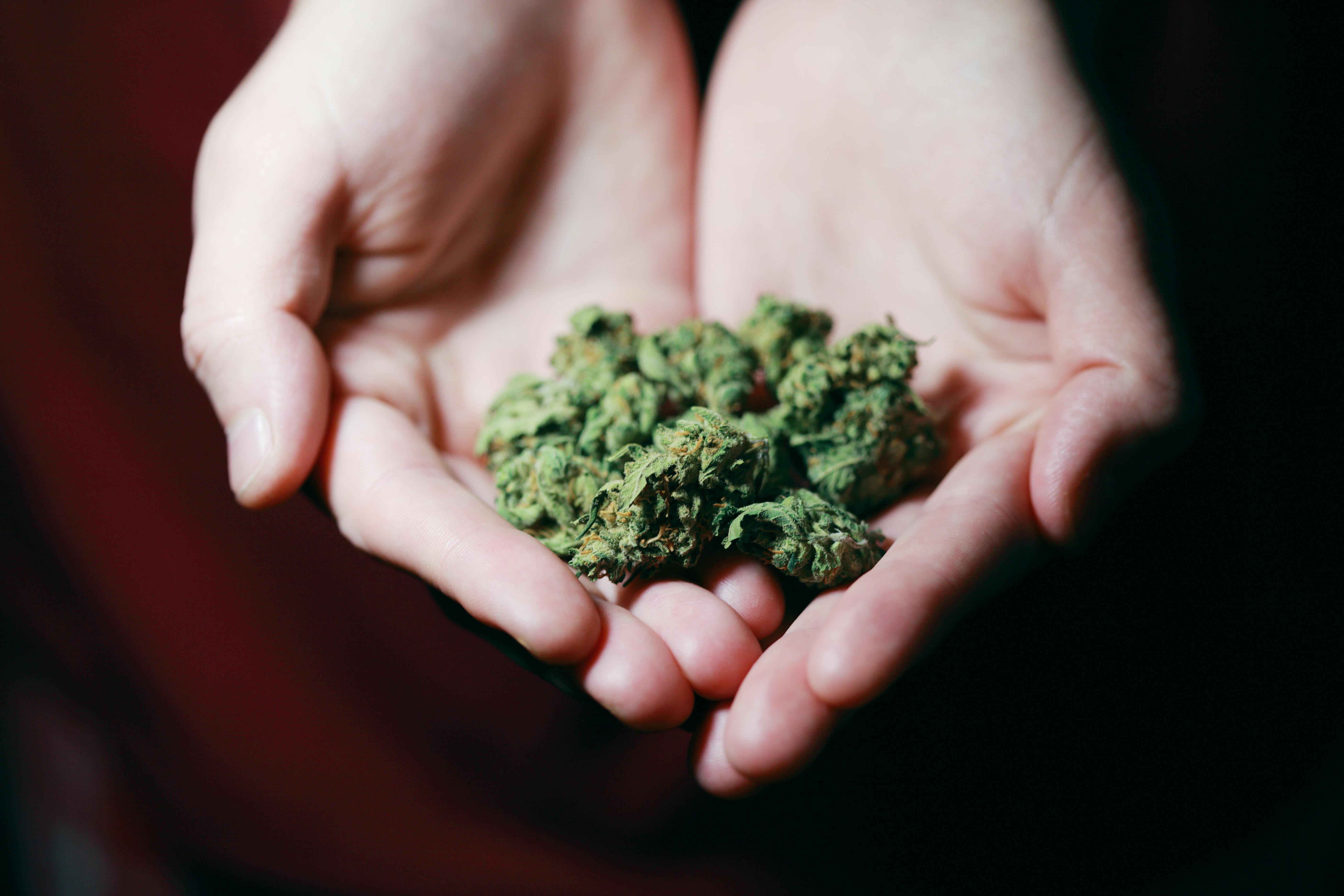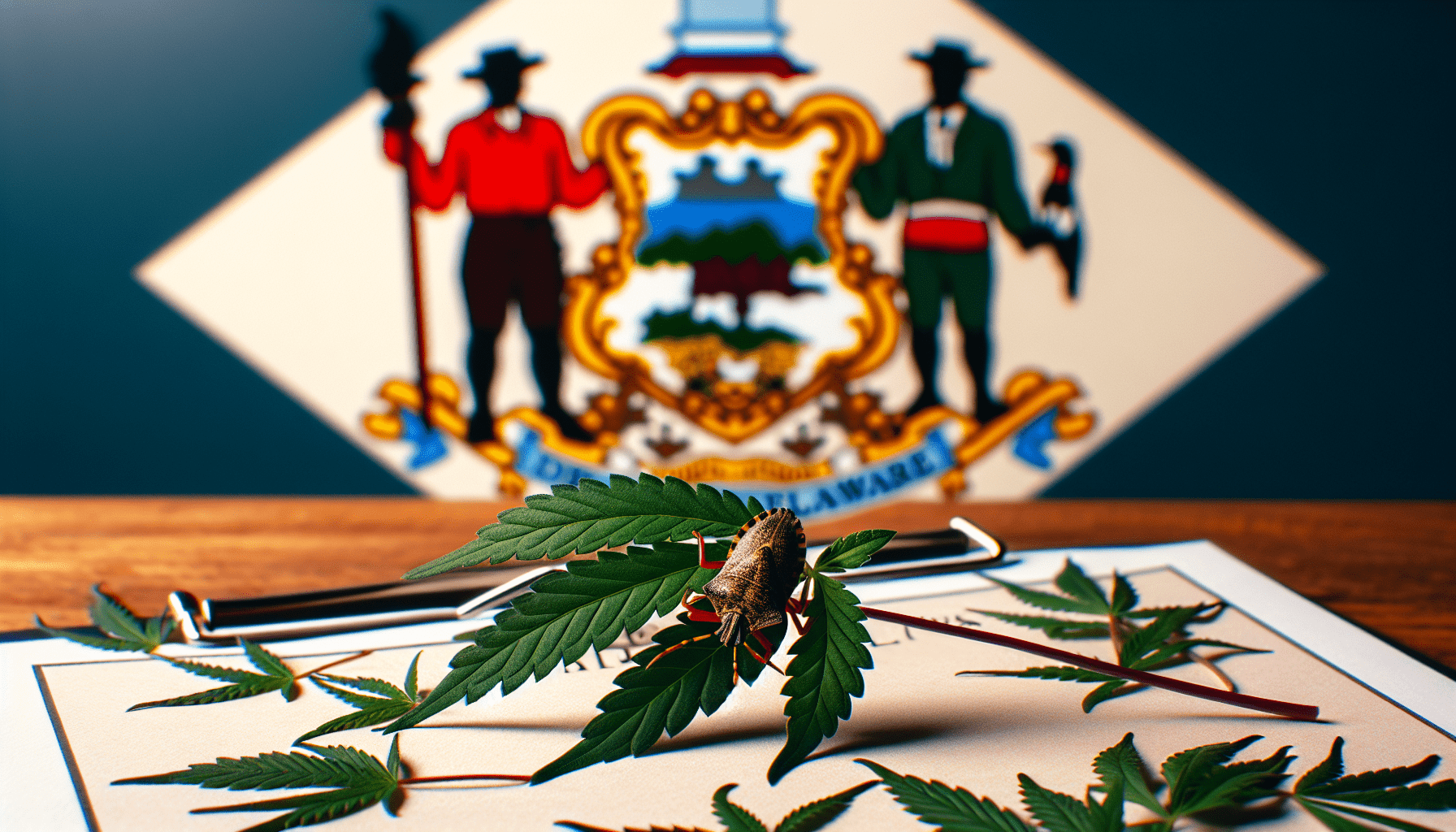Did you know that Delaware has made significant strides in terms of cannabis legislation? In this article, we will provide you with an overview of the current cannabis laws in the state of Delaware. We will explore topics such as medical marijuana, decriminalization, and the status of recreational use. By the end of this article, you will have a better understanding of the legal landscape surrounding cannabis in Delaware. So, let’s jump right in!
Medical Marijuana Program
Qualifying Conditions
In Delaware, the Medical Marijuana Program allows individuals with certain qualifying conditions to access and use medical cannabis. These qualifying conditions include cancer, HIV/AIDS, terminal illness, Alzheimer’s disease, PTSD, intractable epilepsy, and a variety of other debilitating conditions. To participate in the program, you must have a certification from a registered physician in Delaware.
Patient Registration
To become a registered patient in Delaware’s Medical Marijuana Program, you must submit an application to the Delaware Department of Health and Social Services. The application requires you to provide your personal information, medical history, and a certification from a registered physician. Once approved, you will receive a Medical Marijuana ID card which allows you to purchase and possess medical cannabis.
Dispensaries
Delaware has several licensed compassion centers, also known as dispensaries, where registered patients can purchase medical cannabis. These dispensaries are regulated by the Delaware Division of Public Health. Patients can choose from a variety of cannabis products, including flower, edibles, concentrates, and topicals. The dispensaries also provide guidance and education on the safe and responsible use of medical cannabis.
Possession Limits
Under Delaware’s Medical Marijuana Program, registered patients are allowed to possess up to six ounces of usable marijuana. It’s important to note that only registered patients and their designated caregivers are legally allowed to possess and use medical cannabis in Delaware.
Recreational Use
Adult Use Legalization
While medical cannabis is legal in Delaware, recreational use is currently not allowed. However, there have been discussions and efforts to legalize adult-use cannabis in the state. Keep an eye on future legislation and public opinion as Delaware may follow the path of other states in legalizing recreational cannabis.
Possession Limits
As of now, possession of recreational cannabis in Delaware is illegal. Individuals found in possession of small amounts of cannabis may face criminal charges and penalties.
Home Cultivation
Currently, home cultivation of cannabis for recreational use is not permitted in Delaware. Only registered medical cannabis patients are allowed to cultivate a limited number of plants for personal use. However, if adult-use cannabis is legalized in the future, home cultivation laws may change.
Public Consumption
In Delaware, public consumption of cannabis is strictly prohibited. It is important to consume cannabis only in private residences, where you have legal permission to do so, to avoid legal trouble.

Criminalization of Cannabis
Cannabis-related Offenses
Prior to the establishment of the Medical Marijuana Program in Delaware, cannabis possession and distribution were illegal. However, with the implementation of the program, certain protections were put in place for registered patients. Despite this, it is important to be aware of the laws surrounding cannabis-related offenses if you are not a registered patient.
Penalties and Fines
Possession of small amounts of cannabis without a medical marijuana card can result in criminal charges and fines in Delaware. The severity of the penalties varies depending on the amount of cannabis, prior convictions, and other factors. It is crucial to abide by the laws and regulations to avoid any legal consequences.
Decriminalization of Cannabis
Decriminalization Laws
Delaware has decriminalized the possession of small amounts of cannabis. The state treats possession of up to one ounce of cannabis as a civil offense rather than a criminal offense. This means that instead of facing jail time, individuals caught with small amounts of cannabis may be subject to civil fines and penalties.
Decriminalized Possession Limits
Under Delaware’s decriminalization laws, possession of up to one ounce of cannabis is considered a civil offense. Possession of more than one ounce can still result in criminal charges and penalties, so it is important to stay within the legal limits.
Civil Penalties
Instead of facing criminal charges, individuals caught with up to one ounce of cannabis in Delaware may be subject to civil penalties. These penalties can include fines and mandatory drug education programs. It is important to adhere to the decriminalization laws and understand the consequences to avoid legal trouble.

CBD Laws
Legalization of CBD
CBD, or cannabidiol, has been legalized in Delaware for both medical and recreational use. CBD is a non-psychoactive compound found in cannabis that has various potential therapeutic benefits. It can be derived from both marijuana and hemp plants.
CBD Usage and Possession
In Delaware, individuals can legally use and possess CBD products as long as they contain a minimal amount of THC, the psychoactive component of cannabis. CBD products must also be derived from hemp or marijuana plants that are legally grown and processed.
CBD Sales and Distribution
CBD products can be legally sold and distributed in Delaware. However, it is important for businesses to adhere to the regulations set by the state. CBD products must be properly labeled and contain accurate information about the CBD content, THC content, and other ingredients.
Industrial Hemp
Hemp Legalization
Delaware has legalized the cultivation and processing of industrial hemp. Industrial hemp is a variety of cannabis that contains very low levels of THC and is primarily grown for its fibers and seeds. The legalization of hemp provides opportunities for farmers and businesses to engage in the hemp industry.
Hemp Cultivation
Farmers in Delaware can now legally grow industrial hemp as long as they meet the requirements set by the Delaware Department of Agriculture. These requirements include obtaining a license, providing accurate information about the cultivation site, and following guidelines for THC testing.
Hemp Processing
Once industrial hemp is harvested, it can be processed into various products such as textiles, building materials, paper, food products, and CBD extracts. The processing of industrial hemp in Delaware is regulated to ensure quality control and compliance with state laws and regulations.

Regulatory Agencies
Delaware Department of Health and Social Services
The Delaware Department of Health and Social Services plays a crucial role in the regulation of the Medical Marijuana Program. They oversee the licensing of physicians, patient registration, and ensure compliance with the laws and regulations governing medical cannabis.
Delaware Division of Public Health
The Delaware Division of Public Health is responsible for regulating and overseeing the licensed compassion centers, also known as dispensaries. They ensure that the dispensaries meet certain standards for safety, security, and product quality. The Division of Public Health also provides guidance on the appropriate use of medical cannabis.
Delaware Office of Medical Marijuana
The Delaware Office of Medical Marijuana is a division within the Department of Health and Social Services that specifically focuses on the implementation and administration of the Medical Marijuana Program. They handle patient registrations, licensing for compassion centers, and other aspects of the program.
Taxation and Revenue
Medical Marijuana Taxes
In Delaware, medical marijuana is subject to a state sales tax. Additionally, registered patients must pay an annual fee to maintain their Medical Marijuana ID card. The revenue generated from these taxes and fees helps support the administration and regulation of the Medical Marijuana Program.
Recreational Marijuana Taxes
Since recreational marijuana is not yet legalized in Delaware, there are no specific taxes imposed on its sale or use. However, if recreational cannabis is legalized in the future, it is likely that the state will implement taxes to generate revenue.
Tax Revenue Allocation
The tax revenue generated from the sale of medical marijuana is allocated towards the administration of the Medical Marijuana Program and other relevant healthcare initiatives. These funds may also be used to support educational programs and public awareness campaigns related to cannabis.

Impact on Employment
Drug Testing Policies
Employers in Delaware have the right to implement drug testing policies for their employees. This includes testing for cannabis and other substances. However, it is important for employers to consider the legal use of medical cannabis and potential accommodations for registered patients.
Protections for Employees
Registered medical marijuana patients in Delaware are protected from employment discrimination based solely on their participation in the Medical Marijuana Program. Employers must provide reasonable accommodations for registered patients and consider the potential therapeutic benefits of medical cannabis.
Workplace Consumption
In Delaware, it is illegal to consume cannabis in the workplace, regardless of whether it is for medical or recreational use. It is important to adhere to workplace policies and regulations to prevent any legal issues or employment consequences.
Future Outlook
Potential Legalization Efforts
Delaware has seen ongoing discussions and efforts towards the potential legalization of recreational cannabis. There is growing public support for adult-use legalization, and it is possible that future legislation may be introduced. Following the legalization trends seen in other states, Delaware may consider the potential economic benefits and social equity programs associated with legalization.
Cannabis Industry Growth
As the medical cannabis program continues to expand in Delaware, the cannabis industry is expected to experience substantial growth. From cultivation to retail, opportunities for businesses and employment are likely to increase. Furthermore, if recreational cannabis is legalized, the industry’s growth potential will be even greater.
Social Equity Programs
With the potential legalization of recreational cannabis, Delaware may also implement social equity programs to address the historical impacts of cannabis prohibition. These programs aim to provide opportunities and support for individuals and communities disproportionately affected by cannabis-related arrests and convictions. By promoting diversity and inclusion within the industry, social equity programs can help create a more equitable and fair cannabis market in Delaware.
With an overview of Delaware’s cannabis laws and regulations, it is important to stay informed and comply with the current legislation. Whether you are a registered patient, a potential entrepreneur in the cannabis industry, or simply a resident interested in the evolving cannabis landscape, understanding the laws and their impact is essential. Keep yourself updated on any changes or upcoming legislation to navigate the world of cannabis in Delaware.
